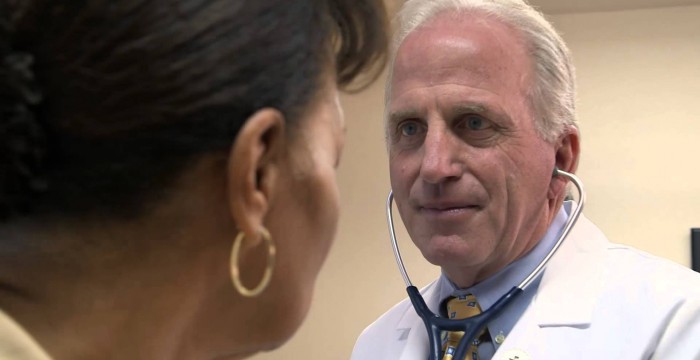Doctors count on Medicare Advantage because it works for patients. Watch Dr. Barrett's story to learn more.
To share on Facebook, click here:
To share on Twitter, click here:
—
FULL TRANSCRIPT
When it comes to taking care of my senior patients, there is no better option than working through a Medicare Advantage program.
One of the areas where Medicare Advantage really helps my patients is in the management of chronic diseases such as diabetes and preventing complications.
I recently had a new Medicare Advantage patient come to my office. He was a diabetic patient who had terrible control of his disease. He was at significant risk for long-term complications.
After I met with him, I was able to tell him about a special program that my medical group has to specifically help those patients who are having a difficult time managing their diabetes. Within two days, he had an appointment scheduled with a diabetic educator and a dietician who could work with him individually to help him do better.
When he came to my office, he was jaded, he was depressed, and almost angry and defeated, feeling like there was nothing he could do about his disease. When he walked out the door, he had tears of gratitude and said to me, “For the first time I feel like somebody actually cares.”
One of my greatest fears as a doctor is that we’ll miss something or that something preventable will happen. Right now with the support of my medical group, we do an incredible job of identifying problems, preventing complications, and developing programs to keep our patients healthy.
In traditional Medicare, there’s actually limits that are placed on us as to how often we can measure our patients’ blood tests– only every 90 days for their long-term diabetic control.
On Medicare Advantage Plans, I can do whatever test I need whenever to help a particular patient get the service that they need, and get that crucial information that can give them the motivation they need to let them know they’re on the right path.
In my time as a Medicare Advantage physician, I’ve been a part of a medical group that looks for new ways to address these old problems; that is willing to try new innovations and to invest in new technology or new programs that have the hope of changing the life, not just of one patient, but of a whole population of patients.






